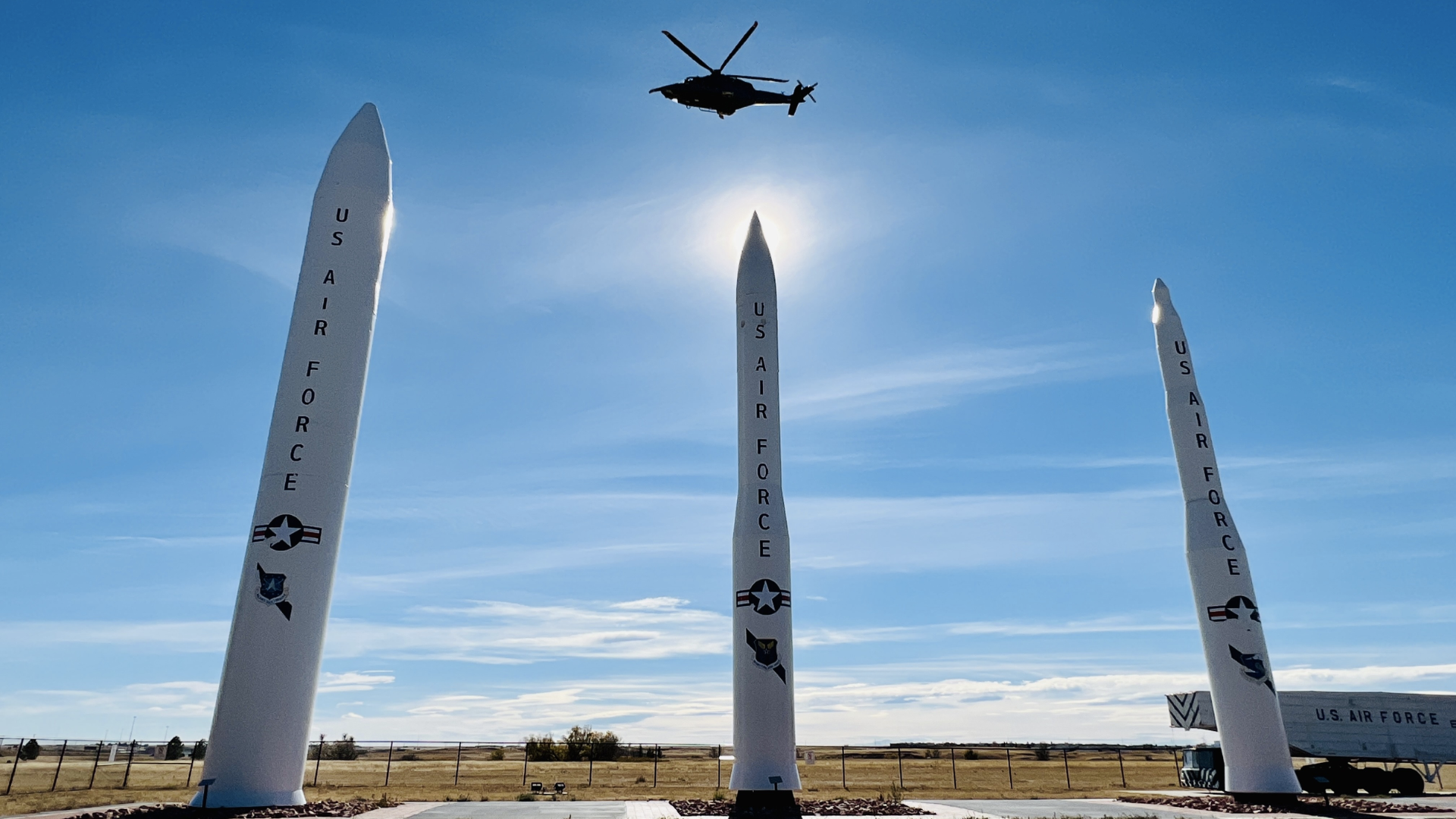The US administration has kicked off a China-backed crypto mining firm from owning land near a nuclear missile base in the country.
MineOne Partners Ltd, a firm that is partly owned by Chinese state, bought a property for crypto mining near Francis E Warren Air Force Base that houses intercontinental ballistic missiles.
Calling the crypto firm’s move to purchase land a national security threat, the US administration ordered it to vacate and sell the property.
“The proximity of the foreign-owned real estate to a strategic missile base and key element of America’s nuclear triad, and the presence of specialized and foreign-sourced equipment potentially capable of facilitating surveillance and espionage activities, presents a national security risk to the United States,” the White House said in a statement.
Federal and state officials have sounded the alarm about what they say is a pattern of Chinese companies buying land near US military installations.
Lawmakers in dozens of states have introduced bills that would ban China-linked businesses and Chinese citizens from buying land near military bases, reported Bloomberg.
“Today’s divestment order underscores President Biden’s steadfast commitment to protecting the United States’ national security,” said Secretary of the Treasury Janet L Yellen.
“It also highlights the critical gatekeeper role that CFIUS serves to ensure that foreign investment does not undermine our national security, particularly as it relates to transactions that present risk to sensitive US military installations as well as those involving specialized equipment and technologies.”
Home to Minuteman III intercontinental ballistic missiles
The China-backed crypto mining firm, MineOne had purchased the property in June 2022 and later made improvements to allow for the property’s use of cryptocurrency mining operations within one mile of the Air Force base in Cheyenne, Wyoming.
The military installation is a strategic missile base and home to Minuteman III intercontinental ballistic missiles.
According to USAF, the LGM-30G Minuteman intercontinental ballistic missile, or ICBM, is an element of the nation’s strategic deterrent forces under the control of the Air Force Global Strike Command.
The “L” in LGM is the Department of Defense designation for silo-launched; “G” means surface attack; “M” stands for guided missile, the 30 stands for the Minuteman series of missile and the G after “30” is the current Minuteman III.
The US’ ICBM force consists of 400 Minuteman III missiles located at the 90th Missile Wing at FE Warren AFB, Wyo.; the 341st Missile Wing at Malmstrom AFB, Mont.; and the 91st Missile Wing at Minot AFB, ND.
National security risk
Officials in CFIUS reviewed and investigated MineOne’s land purchase under the Foreign Investment Risk Review Modernization Act – which cover real estate transactions in close proximity to certain sensitive US facilities, including Francis E. Warren Air Force Base.
CFIUS maintained that it identified national security risks arising from the transaction relating to the proximity of the property to FE Warren AFB.
CFIUS also assessed the risk associated with the presence of specialized equipment on the property used to conduct cryptocurrency mining operations, some of which are foreign-sourced and presents significant national security concerns.
CFIUS has the powers to negotiate and enter into an agreement or take other actions to mitigate the national security risk arising from a covered transaction.
In some cases, however, CFIUS determines that mitigation of the national security risk is not adequate or appropriate, and that the President should prohibit a transaction.
China-backed firm didn’t file transaction with CFIUS
The crypto-mining firm did not file the transaction with CFIUS until after CFIUS’s non-notified team investigated the transaction as a result of a public tip.
“If CFIUS parties are unwilling or unable to fully address national security risks, CFIUS won’t hesitate to exercise the full scope of its authorities, including Presidential referrals, to address the risk,” said Assistant Secretary of the Treasury for Investment Security Paul Rosen.
“CFIUS expects complete, accurate, and timely information, particularly when serious national security issues are on the line.”
ABOUT THE EDITOR
Prabhat Ranjan Mishra Prabhat, an alumnus of the Indian Institute of Mass Communication, is a tech and defense journalist. While he enjoys writing on modern weapons and emerging tech, he has also reported on global politics and business. He has been previously associated with well-known media houses, including the International Business Times (Singapore Edition) and ANI.



 Bitcoin
Bitcoin  Ethereum
Ethereum  Tether
Tether  XRP
XRP  USDC
USDC  TRON
TRON  Lido Staked Ether
Lido Staked Ether  Dogecoin
Dogecoin  Figure Heloc
Figure Heloc  Cardano
Cardano  WhiteBIT Coin
WhiteBIT Coin  Wrapped stETH
Wrapped stETH  Wrapped Bitcoin
Wrapped Bitcoin  Bitcoin Cash
Bitcoin Cash  USDS
USDS  LEO Token
LEO Token  Binance Bridged USDT (BNB Smart Chain)
Binance Bridged USDT (BNB Smart Chain)  Chainlink
Chainlink  Hyperliquid
Hyperliquid  Monero
Monero  Stellar
Stellar  WETH
WETH  Wrapped eETH
Wrapped eETH  Ethena USDe
Ethena USDe  Coinbase Wrapped BTC
Coinbase Wrapped BTC  Zcash
Zcash  Litecoin
Litecoin  Hedera
Hedera  Avalanche
Avalanche  Sui
Sui  Shiba Inu
Shiba Inu  Dai
Dai  World Liberty Financial
World Liberty Financial  sUSDS
sUSDS  Ethena Staked USDe
Ethena Staked USDe  PayPal USD
PayPal USD  USDT0
USDT0  Cronos
Cronos  Toncoin
Toncoin  Uniswap
Uniswap  Polkadot
Polkadot  Mantle
Mantle  Canton
Canton  USD1
USD1  Bittensor
Bittensor  Aave
Aave  Bitget Token
Bitget Token  MemeCore
MemeCore